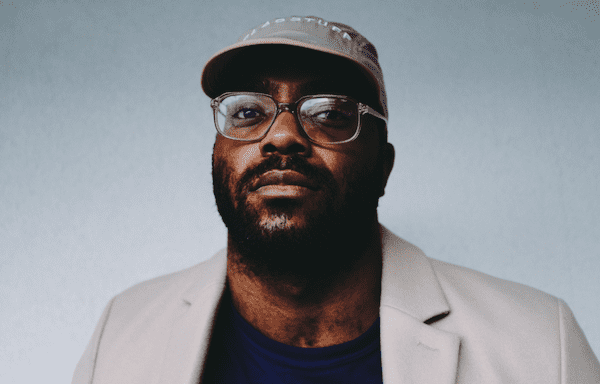Far more than just a band, but trailblazers at the helm of a new path carved for punk and hardcore music to be delivered with both sincerity and flair, Swedish hardcore legends, Refused, were, throughout the nineties, a tour de force. Their politics was held in equal regard to their music, with a fanzine linked to their 1996 record, Songs to Fan the Flames of Discontent, detailing the ideas that stoked that very same sonic fire. However, after an ill-fated US tour following a tepid reception from 1998’s The Shape of Punk To Come, the band splintered announced their demise through a strongly-worded open letter titled “Refused Are Fucking Dead” on their label’s website. After a decade-spanning hiatus, Refused reunited in 2012 to incredible fanfare, taking their rightful place as recognised punk innovators. The band haven’t looked back, with 2019 seeing the release of their fifth studio album, War Music: a fitting soundtrack as we continue to navigate political storms.
“You know what success is?”, lead vocalist Dennis Lyxzén asks. “It’s that twenty years into my career, we can release music that people are still excited about.” War Music was received with open arms by critics: their anarchic quality and hectic rhythms prove that Refused still have muscle to flex. “There’s been periods where no one cared about a record I put out”, he confesses. “But you have to keep on doing it, and look at your life as if it’s a piece of art. Success is being able to create something new.”
In the run up to the new record, Refused released a triptych of singles: “Blood Red”, “REV001” and “Economy of Death”. While Lyxzén describes the former two as very “mid-tempo”, he explains his choice to release “Economy of Death” as the third single because “it’s like a crasher, you know?” It’s War Music in its final death throes, with Lyxzén wielding truth like a weapon: “Lapdogs of tyrants collude to further their fucking greed / You sit at home refreshing the end of history feed.”
“The new record is very much reaction to the previous record,” he continues. “You need to be able to have the mindset of saying like, ‘Okay, where do we need to go where we haven’t been before?’ When you create or write, I think one of the things I love is when you’re uncomfortable. You need to push your language you need to push the ideas that you’re singing and think about what it is we’re talking about and why are we talking about it. You need to define what everything means to you. One of the things – I mean, David [Sandström, drummer] talked a lot about on this record is like, you’ll write something and then you think you’re really clever. Like, oh, that’s really cool. And then and then we talk and then David says, “Why would you want to scream that though?” And I’m like, “Oh, no, you’re right.” Because there has to be an aspect of like, what serves the art? What serves the song? I mean, you can be as smart as you want. But then if it doesn’t make sense for the song or for the piece of art, then you have to be able to withdraw or try something different – and I think that’s been especially the case with War Music. Something that we talked a lot about was, “Why do you want to scream these things? Like, why would you want to scream this?” I think that every piece of art should be a move in a different direction.”
As a well-seasoned musician, Lyxzén knows better than anyone what the demands of being both artist and performer can have. “I think one of the things which is a very special aspect of being an artist or musician is that it’s your entire life,” he explains. “Most people, they get up in the morning, they go to their work – whatever that is – and then they go home, and maybe they have kids, and they have to deal with that and they have to cook dinner and then they’ll try to have some time with their partner and then they fall asleep. But my wife is actually getting up in the morning, thinking about the system,” he laughs. “The existential issues of the day, the political climate of the day, and then kind of kind of reshape that into our you know… that’s kind of a lot of my job description that’s kind of what it is. And so it’s a weird thing, because people in their ordinary lives, they’ll hear the song or they’ll see movie or whatever. For them that’s part of escape – this more of just a nice distraction. For me, every movie, I see every record I listened to every book I read, every person I meet, it’s something that potentially could end up in my notebook – and that potentially could become art later on. Everything I do everything I all the conversations that I have is something from me.”
“There’s always stuff around you that sort of goes into the notebook, you know?”, Lyxzén says. He actually has several notebooks: “usually one for each process.” Now that War Music is complete, he explains that that notebook gets filed away into his “notebook library” – an illustrious archive of ideas – ready to begin a new notebook for the next “creative cycle.”
The path Refused has taken has never been linear. Theirs was a rocky one, and a steep one, marked by the highest of highs and the lowest of lows. As a band with more than twenty years in the industry, one of the biggest challenges, Lyxzén confesses, is, “How do you stay relevant in your own mind? There’s a lot of bands out there that they are touring, doing their greatest hits tour, or they’re kind of just rehashing a formula that they’ve figured out – which is fine, there’s no judgement – but we’re not those types of people: we’re the type of people that whenever we want to go on tour, whatever we want to play; we want to feel like that there’s a relevance to what we’re doing – at least to ourselves. I mean, I can’t decide what other people think. But I think that’s the biggest challenge: like, how do you stay relevant in your own mind? How do you keep on pushing yourself to your creative edge so to speak? I think as long as we feel that we feel that we have that in us we’re going to keep creating and we’re going to keep trying to keep making music.”
In a band so entrenched in discontent, and in a profession that demands total self-immersion, Lyxzén is the first to admit that he has darker days. “Yeah, it does happen.” He admits. “I think it happens to everyone. And I think it’s definitely an issue that we need to address and we need to talk about. You have good people around you. But if you have a bad day, there’s always a record for the bad days; on a good day, there’s a record for the good days. If you need to pick me up, there’s a record for that.”
“It’s one of those issues that especially men have a hard time talking about, and have a hard time dealing with their own inability to function – because that’s what it is: you feel like you’re not functioning the way you’re supposed to. We live in a world that puts almost impossible demands on us, like you’re supposed to be successful and beautiful and in good shape. And, you know, when you’re posting, there’s all these criteria that you’re supposed to check in to be a successful person, and a lot of us don’t have time or energy or capacity to do that, and it makes us feel makes us feel inadequate. It’s kind of weird to see how we continue to accept living in a system that creates mental health problems for people on a daily basis. I think that we need to look at the economic, cultural, social structures that create problems for people. If we look at that, and maybe we can get an understanding of why people are feeling this way. And then maybe we can change the system that creates this. But at the end of the day, I think that we need to get together and actually kind of try to create a world where we all can live.”
Since the release of Refused 1994 debut album, holding the promise that: This Might Just Be… The Truth, all the way to War Music, the Swedish punks have attained status no less than legendary. Bringing the danger back to punk, their music would go on to become part of the sonic blueprint of Linkin Park, Enter Shikari and La Dispute, among countless others. “I would say, if there’s anything about my legacy, if there’s anything about the life I’ve lived, I want it to be that people look at my career and say, ‘That guy fucking held the line.’ He leaves us with the lingering promise: “I’m so far from done.”






